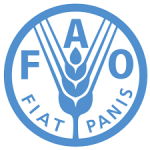Food and Agriculture Organization of the United Nations

Grants in technical assistance for projects in agriculture, fisheries, and forestry in the developing world
Principal Office: International
Established in 1945, the Food and Agriculture Organization (FAO) is among the original agencies of the United Nations. Its mandate is to raise levels of nutrition, improve agricultural productivity, better the lives of rural populations, and contribute to the growth of the world economy.
FAO does this by sharing expertise in agricultural and rural policy; by serving as a forum for global issues in agriculture, fisheries, forestry, and environment; and by sponsoring field projects to improve the management of agriculture and natural resources in the developing countries.
Grant Programs for Agriculture, Energy, Environment, Natural Resources
1 — Technical Cooperation Program (TCP). FAO’s principal source of grants is its Technical Cooperation Program. The TCP operates in all of the world’s developing regions, with emphasis on the neediest countries.
The purpose of the TCP is to support projects which address specific problems in agriculture, fisheries and aquaculture, and forestry. Additionally, TCP sets aside some of its funding for emergency projects, e.g., control of insect and disease outbreaks affecting food production.
The TCP is accessible in all FAO member countries, with preference for the low-income food-deficit countries.
The maximum grant size is US$500 thousand over two years.
APPLICATION: Requests to the TCP normally are made by government agencies for agriculture, forestry, fisheries, or rural development more broadly. Projects proposed by NGOs, foundations, cooperatives, etc., are also eligible if they are endorsed by the government authorities
In countries where FAO has an accredited Representative, requests for funding through the TCP are normally channeled through that office. In countries in which there is no Representative, FAO’s regional and sub-regional offices assume this responsibility.
Link to Eligibility and Criteria
2 — FLEGT Program. In coordination with the European Union, FAO implements the “Forest Law Enforcement, Governance, and Trade Support Program” (FLEGT). The program makes grants to address thematic areas in the FLEGT Program for 2015-2021 (its third phase). The objectives are:
- To stop illegal logging;
- To promote trade in legal timber products; and
- To contribute to sustainable forest management and poverty reduction.
“VPA countries” have negotiated or are in negotiation stages of Voluntary Partnership Agreements (VPA) with the European Union. FLEGT also supports non-VPA countries in the same issues to curb illegal logging, improve forest governance, and promote trade of legally-sourced timber.
Eligibility for grants is open to government institutions, civil society organizations, and private sector organizations in the program’s eligible countries.
In calls for proposals, grants are up to €100 thousand. For direct assistance, grants are up to €50 thousand.
APPLICATION: FLEGT operates through calls for proposals, and also through direct assistance.
Calls for proposals are open to governments, civil society, and private-sector organizations. FLEGT posts the calls, eligibility criteria, and application deadlines.
Direct assistance supports specific actions connected with implementing a national VPA strategy, such as provision of training and technical assistance. Direct assistance is available to governments and to private sector organizations, including small and medium enterprises that may find difficult to request assistance through calls for proposals.
About how to apply
Geographical Distribution of Grant Activities in Developing Countries
FAO’s developing member countries are identified below.
Southeast Asia and Pacific Islands: Brunei, Cambodia, Fiji, Indonesia, Kiribati, Laos, Malaysia, Marshall Islands, Micronesia, Myanmar, Nauru, Palau, Papua New Guinea, Philippines, Samoa, Solomon Islands, Thailand, Timor-Leste, Tonga, Tuvalu, Vanuatu, Vietnam
East Asia: China, Mongolia, North Korea
South Asia: Bangladesh, Bhutan, India, Maldives, Nepal, Pakistan, Sri Lanka
Eurasia and Central Asia: Afghanistan, Armenia, Azerbaijan, Georgia, Iran, Kazakhstan, Kyrgyzstan, Tajikistan, Turkey, Turkmenistan, Uzbekistan
Eastern Europe and Russia: Albania, Belarus, Bosnia and Herzegovina, Croatia, Macedonia, Moldova, Russia, Serbia, Ukraine
Middle East and North Africa: Algeria, Bahrain, Egypt, Iraq, Jordan, Kuwait, Lebanon, Libya, Morocco, Oman, Qatar, Saudi Arabia, Syria, Tunisia, United Arab Emirates, Yemen
Sub-Saharan Africa: Angola, Benin, Botswana, Burkina Faso, Burundi, Cameroon, Cape Verde, Central African Republic, Chad, Comoros, Congo, Cote d’Ivoire, Dem Rep of Congo, Djibouti, Equatorial Guinea, Eritrea, Ethiopia, Gabon, Gambia, Ghana, Guinea, Guinea-Bissau, Kenya, Lesotho, Liberia, Madagascar, Malawi, Mali, Mauritania, Mauritius, Mozambique, Namibia, Niger, Nigeria, Rwanda, Sao Tome and Principe, Senegal, Seychelles, Sierra Leone, Somalia, South Africa, South Sudan, Sudan, Swaziland, Tanzania, Togo, Uganda, Zambia, Zimbabwe
Latin America and Caribbean: Antigua and Barbuda, Argentina, Bahamas, Barbados, Belize, Bolivia, Brazil, Chile, Colombia, Costa Rica, Cuba, Dominica, Dominican Republic, Ecuador, El Salvador, Grenada, Guatemala, Guyana, Haiti, Honduras, Jamaica, Mexico, Nicaragua, Panama, Paraguay, Peru, Saint Kitts and Nevis, Saint Lucia, Saint Vincent and Grenadines, Suriname, Trinidad and Tobago, Uruguay, Venezuela
[special_heading type=”h2″ underline=”yes”]Comments[/special_heading]
FAO’s website is available in Arabic, Chinese, English, French, Russian, and Spanish.
FAO sponsors the Edouard Saouma Award for excellence in managing TCP projects. Eligible applicants are national and regional institutions which have managed a project funded by the TCP in the two years preceding the biennial call for nominations. The award winners receive cash prizes of US$25 thousand for the recipient institution.
Other biennial awards include the Jacques Diouf Award for best contribution to global food security, the biennial Margarita Lizárraga Medal Award for promoting the Code of Conduct for Responsible Fisheries; the B.R Sen Award for FAO field officers; and the A. H. Boerma Award for journalists who have successfully steered public attention towards food security topics.
FAO provides a directory of its worldwide offices.
